

Title: Entering the future: Over-of-sight Traffic Perception based on Citywide Traffic Condition Prediction
Panelist: Yuanjian Zhang
Abstract: Connectization and intelligentization empower the next generation of intelligent electric vehicles with unprecedented macro-traffic sensing and fusion capabilities. The further enhancement of this over-of-sight traffic information perception will help solve the problems of road congestion, driving safety and pollutant emissions. We thoroughly explore the AI application in urban-traffic feature extraction and perception fusion problem, and propose a series of spatial-temporal feature extraction and prediction methods. The results show that our methods achieve SOTA in a variety of urban traffic datasets and reveal novel research directions for urban-traffic flow feature fusion.
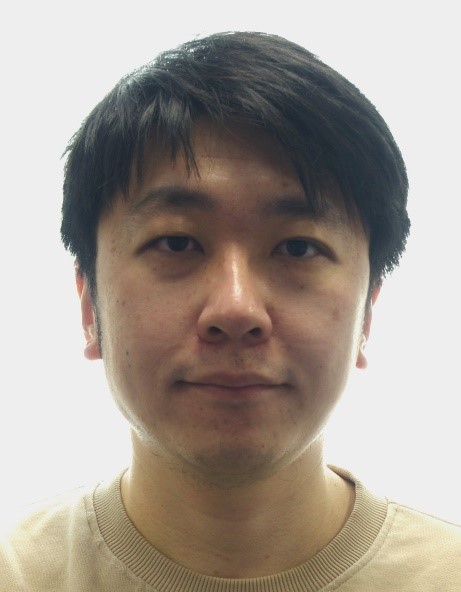 Personal Profile:Dr Yuanjian Zhang is a Lecturer in the Department of Aeronautical and Automotive Engineering at Loughborough University. He was awarded his PhD in Automotive Engineering from the Jilin University, China in 2018, and joined the research staff in the Centre for Automotive Engineering at University of Surrey in 2018. He moved to Sir William Wright Technology Centre at Queen’s University Belfast in early 2019. On December 2021, he started his work at Loughborough University as a Lecturer (Assistant Professor) in Intelligent Electric Vehicles. His research interests focus on new generation clean propulsion control and optimization, digital modelling and simulation, intelligent transportation system and artificial intelligence (AI) in engineering practice.
Personal Profile:Dr Yuanjian Zhang is a Lecturer in the Department of Aeronautical and Automotive Engineering at Loughborough University. He was awarded his PhD in Automotive Engineering from the Jilin University, China in 2018, and joined the research staff in the Centre for Automotive Engineering at University of Surrey in 2018. He moved to Sir William Wright Technology Centre at Queen’s University Belfast in early 2019. On December 2021, he started his work at Loughborough University as a Lecturer (Assistant Professor) in Intelligent Electric Vehicles. His research interests focus on new generation clean propulsion control and optimization, digital modelling and simulation, intelligent transportation system and artificial intelligence (AI) in engineering practice.
****************************************************************************************************************************************************************
Title: Ecological Driving of Connected and Automated Vehicles
Panelist: Dezong Zhao
Abstract: Due to the shortage of fossil fuels and rising globally environmental concerns, improving the energy efficiency of transportation systems has become essential over the years. The ecological (eco)-driving strategies can assist vehicles to operate in fuel efficient conditions by running under optimal speed profiles. It is generally accepted that eco-driving strategies can substantially improve the efficiency of vehicles. Some studies indicated that eco-driving strategies can improve vehicle fuel economy up to 25%. Connected and automated vehicles (CAVs) have access to more and further road information than conventional vehicles using advanced technologies, such as vehicle-to-vehicle (V2V) communications, vehicle-to-infrastructure (V2I) communications and intelligent transportation systems. These technologies enable CAVs to acquire the future route’s traffic information, in terms of traffic flow rate, traffic density and traffic signal timing. We would present our developments in the eco-driving for an autonomous vehicle, automated vehicle platoons, and mixed platoons with CAVs and HDVs.
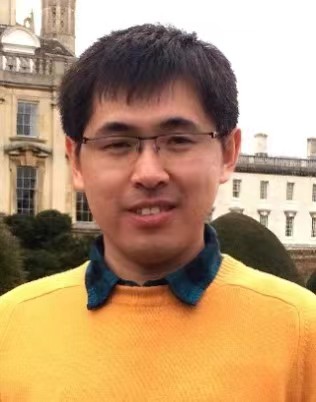 Personal Profile:Dezong Zhao is a Senior Lecturer in Autonomous Systems at James Watt School of Engineering, University of Glasgow. He was awarded an EPSRC Innovation Fellow in 2018 and a Royal Society-Newton Advanced Fellow in 2020. His research focuses on perception, decision making, modelling and control of connected and automated vehicles. He is a Senior Member of IEEE, a Member of IET and SAE, and a Fellow of HEA. He is the Deputy Head of the Autonomous Systems and Connectivity Research Division, a Full Member of the EPSRC Review College and a Member of the UKRI Future Leader Fellow Review College. He has over 80 papers published in leading journals and peer review conferences. He has secured grants as the PI from EPSRC, The Royal Society and industry. He was the TPC member of 6 peer-review conferences and chaired 3 sessions. He has won multiple awards including the Best Paper Award at the ICUS in 2021, the Best Poster Prizes at the FPC in 2019 and 2018, and the IEEE CDC Young Researcher Award in 2015. He is an Associate Editor of IEEE TIV and IEEE TVT.
Personal Profile:Dezong Zhao is a Senior Lecturer in Autonomous Systems at James Watt School of Engineering, University of Glasgow. He was awarded an EPSRC Innovation Fellow in 2018 and a Royal Society-Newton Advanced Fellow in 2020. His research focuses on perception, decision making, modelling and control of connected and automated vehicles. He is a Senior Member of IEEE, a Member of IET and SAE, and a Fellow of HEA. He is the Deputy Head of the Autonomous Systems and Connectivity Research Division, a Full Member of the EPSRC Review College and a Member of the UKRI Future Leader Fellow Review College. He has over 80 papers published in leading journals and peer review conferences. He has secured grants as the PI from EPSRC, The Royal Society and industry. He was the TPC member of 6 peer-review conferences and chaired 3 sessions. He has won multiple awards including the Best Paper Award at the ICUS in 2021, the Best Poster Prizes at the FPC in 2019 and 2018, and the IEEE CDC Young Researcher Award in 2015. He is an Associate Editor of IEEE TIV and IEEE TVT.
****************************************************************************************************************************************************************
Title: Iterative Learning-Based Decentralized Model Predictive Charging Control for Plug-In Electric Vehicles
Panelist: Qian Zhang
Abstract: Plug-in electric vehicles (PEVs) charging process significantly impacts the efficiency and even the safety of the electrical power grid. In this work, we study a decentralized framework of the PEV charging problem with a coordination task. An iterative learning-based model predictive charging control algorithm is developed for achieving the valley-filling performance. The design of the decentralized model predictive control meets the individual charging requirements. The iterative learning method approximates the electricity price function and the system state sampled safe set to improve the accuracy of optimization problem calculations. The decentralized problem, in which individual PEV minimizes its own charging cost, is formulated based on the sum of all power loads. Simulation results demonstrate the performance and verify the effectiveness of the proposed framework.
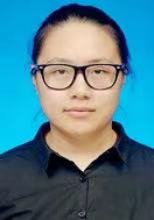 Personal Profile:Qian Zhang received the B. E. degree and M. E. degree in control science and engineering from Harbin Institute of Technology, Heilongjiang, China, in 2014 and 2016, respectively. She received the Ph.D. degree in mechanical engineering at the University of Victoria, British Columbia, Canada, in 2022. Her main research interests include Control Theory, Model Predictive Control (MPC), Iterative Learning, Reinforcement Learning, Optimization and control for energy systems (Plug-In Electric Vehicles, Plug-In Hybrid Electric Vehicles).
Personal Profile:Qian Zhang received the B. E. degree and M. E. degree in control science and engineering from Harbin Institute of Technology, Heilongjiang, China, in 2014 and 2016, respectively. She received the Ph.D. degree in mechanical engineering at the University of Victoria, British Columbia, Canada, in 2022. Her main research interests include Control Theory, Model Predictive Control (MPC), Iterative Learning, Reinforcement Learning, Optimization and control for energy systems (Plug-In Electric Vehicles, Plug-In Hybrid Electric Vehicles).
****************************************************************************************************************************************************************
Title: Reinforcement learning applied to engine speed transient control and virtual EGR observer design
Panelist: Zhenhui Xu
Abstract: The main challenging issue in reinforcement learning is how to reject the oscillation caused by the externally added probing noise. This report challenges this issue by embedding an auxiliary system which provides sufficient exogenous signal for leaning the optimal solution. At first, an auxiliary system is designed to decouple the state trajectory of the controlled system. Then, with the decomposed trajectories, a model-free policy iteration (PI) algorithm is developed. Note that an appropriate additional input is introduced at the policy improvement step to remove the requirement of the input-to-state dynamics. Finally, the algorithm is implemented on an actor-critic structure. The output weights of the critic neural network (NN) and the actor NN are updated by the least-squares methods. Convergence of the algorithm and stability of the closed-loop system are guaranteed. We then challenge the speed control problem of gasoline engines with reinforcement learning methodology. It should be noted the development of efficient and safe model-free algorithms is still a challenging issue in optimal control theory, and Speed control for internal combustion engines is a fundamental issue in the engine control community. The effectiveness is validated on a full-scale engine control test bench. On the other hand, the cooled external exhaust gas recirculation (EGR) loop is introduced in spark-ignition engines for reducing pumping loss and improving fuel economy at part load. Moreover, it suppresses knock tendency and potentially improves the engine efficiency at higher loads by allowing more optimal combustion phasing and less fuel enrichment. Alternatively, it permits larger compression ratio, which further improves the engine efficiency. However, the cooled external EGR causes nonlinear and coupling dynamic effects on the fresh air charging and combustion; this demand leads to complexity in control of the dynamics. By using the RL technique, we continue to challenge a virtual EGR sensor design to regulate the transient performance of the combustion engine.
 Personal Profile:Zhenhui Xu received the M.S. degree in control engineering from University of Science and Technology of China, in 2017 and the Ph.D. degree from mechanical engineering, Sophia University, Tokyo, Japan, in 2021. Since 2021, she has been a Postdoctoral Fellow with the Department of Engineering and Applied Sciences, Sophia University. Her research interests are in the fields of learning-based optimal control, mean field games, and hybrid electric vehicle.
Personal Profile:Zhenhui Xu received the M.S. degree in control engineering from University of Science and Technology of China, in 2017 and the Ph.D. degree from mechanical engineering, Sophia University, Tokyo, Japan, in 2021. Since 2021, she has been a Postdoctoral Fellow with the Department of Engineering and Applied Sciences, Sophia University. Her research interests are in the fields of learning-based optimal control, mean field games, and hybrid electric vehicle.
****************************************************************************************************************************************************************
Title: Delay and Lag Compensated Preview Path Tracking Control for Autonomous Vehicles
Panelist: Shaobing Xu
Abstract: Delay and lag deteriorate path-tracking accuracy and system stability. If not properly compensated, they can cause instability or limit the driving speed of autonomous vehicles. This talk presents a preview steering control design considering both communication delay and steering lag to achieve accurate, smooth, and computationally efficient path tracking for highly automated vehicles. Two strategies are adopted for the delay: forward state predictor and delay augmentation. The steering lag is approximated by a first-order lag system. The path-tracking problem with delay and lag is solved by the preview control theory. The resulted controller is in an analytical form and is computationally efficient for online implementation. We also analyze the system stability and closed-loop responses in both the time and frequency domains. The deployment of the control on a full-size automated vehicle and experimental results will also be reported.
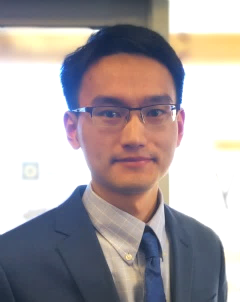 Personal Profile:Shaobing Xu received his Ph.D. degree in Mechanical Engineering from Tsinghua University, Beijing, China, in 2016. He is currently an assistant professor with the School of Vehicle and Mobility at Tsinghua University, Beijing, China. He was an assistant research scientist and postdoctoral researcher with the Department of Mechanical Engineering and Mcity at the University of Michigan, Ann Arbor. His research focuses on vehicle motion control, decision making, and path planning for autonomous vehicles. He was a recipient of the outstanding Ph.D. dissertation award of Tsinghua University the Best Paper Award of AVEC’2018 and AVEC’2022, and the Outstanding Young Scientists Project of NSFC.
Personal Profile:Shaobing Xu received his Ph.D. degree in Mechanical Engineering from Tsinghua University, Beijing, China, in 2016. He is currently an assistant professor with the School of Vehicle and Mobility at Tsinghua University, Beijing, China. He was an assistant research scientist and postdoctoral researcher with the Department of Mechanical Engineering and Mcity at the University of Michigan, Ann Arbor. His research focuses on vehicle motion control, decision making, and path planning for autonomous vehicles. He was a recipient of the outstanding Ph.D. dissertation award of Tsinghua University the Best Paper Award of AVEC’2018 and AVEC’2022, and the Outstanding Young Scientists Project of NSFC.
****************************************************************************************************************************************************************
Title: Human-Lead-Platooning Cooperative Adaptive Cruise Control
Panelist: Jia Hu
Abstract: In this study, a Human-Lead-Platoon CACC ((HLP-CACC) controller is proposed for connected and automated vehicles to “include” human drivers in platooning process. The goal is to form a platoon between automated vehicles and human drivers so that turbulence caused by human drivers could be smoothed out by automated vehicles. Unlike the conventional CACC where only longitudinal control is automated, the proposed HLP-CACC regulates both longitudinally and laterally. In other words, the followers in an HLP-CACC platoon are fully autonomous. The controller is formulated utilizing model predictive control (MPC) solved by Chang-Hu’s method. The technology has the following advantages: 1) take advantage of human drivers’ perception to enable conditional full autonomy; 2) accommodate actuator delay in system dynamics to improve actuator control accuracy; 3) automates both longitudinally and laterally; and 4) ensures string stability in partially connected and automated vehicles environment. Both simulation tests and field tests were conducted to verify the effectiveness of the proposed algorithm. Four scenarios, including straight cruising, lane changing, U-turn and circling were tested. Sensitivity analysis was conducted for speed, turning radius, communication delay and oscillation acceleration. The results confirm that the proposed CACC controller is ready for field implementation. The computation time of the proposed optimal control is approximately 4 - 8 milliseconds when running on an NVIDIA Drive PX 2 computer. Under the control of the proposed HLP-CACC, maximum longitudinal error and lateral error are both within 40 cm.
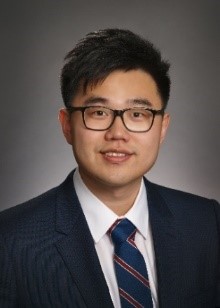 Personal Profile:Jia Hu works as a ZhongTe Distinguished Chair in Cooperative Automation in the College of Transportation Engineering at Tongji University. Before joining Tongji, he was a research associate at the Federal Highway Administration, USA (FHWA). He is an Associate Editor of the IEEE Transaction on Intelligent Transportation Systems, IEEE Transaction on Intelligent Vehicle, American Society of Civil Engineers Journal of Transportation Engineering, IEEE Open Journal in Intelligent Transportation Systems, an assistant editor of the Journal of Intelligent Transportation Systems, an advisory editorial board member for the Transportation Research Part C, an associate editor for IEEE Intelligent Vehicles Symposium since 2018, and an associate editor for IEEE Intelligent Transportation Systems Conference since 2019. Furthermore, he is a member of TRB (a division of the National Academies) Vehicle Highway Automation Committee, Freeway Operation Committee and Simulation subcommittee of Traffic Signal Systems Committee, and a member of CAV Impact Committee and Artificial Intelligence Committee of ASCE Transportation and Development Institute.
Personal Profile:Jia Hu works as a ZhongTe Distinguished Chair in Cooperative Automation in the College of Transportation Engineering at Tongji University. Before joining Tongji, he was a research associate at the Federal Highway Administration, USA (FHWA). He is an Associate Editor of the IEEE Transaction on Intelligent Transportation Systems, IEEE Transaction on Intelligent Vehicle, American Society of Civil Engineers Journal of Transportation Engineering, IEEE Open Journal in Intelligent Transportation Systems, an assistant editor of the Journal of Intelligent Transportation Systems, an advisory editorial board member for the Transportation Research Part C, an associate editor for IEEE Intelligent Vehicles Symposium since 2018, and an associate editor for IEEE Intelligent Transportation Systems Conference since 2019. Furthermore, he is a member of TRB (a division of the National Academies) Vehicle Highway Automation Committee, Freeway Operation Committee and Simulation subcommittee of Traffic Signal Systems Committee, and a member of CAV Impact Committee and Artificial Intelligence Committee of ASCE Transportation and Development Institute.
****************************************************************************************************************************************************************
Title: A platoon control method based on DMPC for connected energy-saving electric vehicles
Panelist: Dawei Pi
Abstract: Intelligent Connected Vehicle is a strategic direction of development of automobile industry of our country. The deep integration of intelligent transportation technology, intelligent network system and intelligent control algorithm to achieve multi-vehicle collaboration has brought a historic opportunity to improve vehicle safety, vehicle energy conservation and emission reduction, and is an important measure to promote the strategic goal of "carbon neutrality" in China. However, how to design efficient and intelligent control algorithms based on the complex dynamic characteristics of vehicles and the communication between vehicles, so as to realize the safe and efficient cooperation between vehicles, is still one of the core problems of multi-vehicle cooperative control. This report focuses on the research of platoon control of intelligent connected vehicles. It will be elaborated from the aspects of multi-objective speed planning algorithm based on vehicle to vehicle communication, braking energy recovery strategy under vehicle formation control, and rapid control prototype test bench construction of multi-vehicle braking system. The research results are helpful to promote the development of Intelligent Connected Vehicle formation control technology.
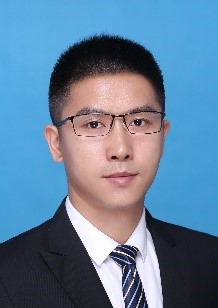 Personal Profile:professor, doctoral supervisor. Born in November 1983. He has presided over six national projects, including projects of the Military Science and Technology Commission, the National Natural Science Foundation, and the National Key Research and Development Program, and four provincial and ministerial projects. He has published more than 60 high-level papers and 20 authorized invention patents. He has won the first prize of science and technology Progress of the Ministry of Education and the second prize of science and technology progress of Jiangsu Province. Currently, he is the editorial board member of Green Energy and Intelligent Transportation, executive editor of the Acta Armamentarii, member of the Youth Committee of China Society of Automotive Engineering, and member of the 4th Vehicle Engineering Teaching Committee of China Association of Machinery Industry Education.
Personal Profile:professor, doctoral supervisor. Born in November 1983. He has presided over six national projects, including projects of the Military Science and Technology Commission, the National Natural Science Foundation, and the National Key Research and Development Program, and four provincial and ministerial projects. He has published more than 60 high-level papers and 20 authorized invention patents. He has won the first prize of science and technology Progress of the Ministry of Education and the second prize of science and technology progress of Jiangsu Province. Currently, he is the editorial board member of Green Energy and Intelligent Transportation, executive editor of the Acta Armamentarii, member of the Youth Committee of China Society of Automotive Engineering, and member of the 4th Vehicle Engineering Teaching Committee of China Association of Machinery Industry Education.
****************************************************************************************************************************************************************
Title: Research on Optimal Control of Hybrid Power Systems in Intelligent Connected Environment
Panelist: Xiaolin Tang
Abstract: Coordinated development of new energy vehicles and intelligent connected vehicles (ICVs) has become an important measure to implement energy saving & emission reduction and promote green development and industrial upgrading in China. Meanwhile, deep integration of intelligent transportation systems (ITS), ICVs, and artificial intelligence (AI) technology will bring historic opportunities for vehicle powertrain optimization and control. However, the comprehensive utilization of environment perception information, traffic road information, and powerful AI algorithms to further improve energy efficiency remains a key challenge. Accordingly, this report focuses on the optimal control of hybrid power systems in the intelligent connected environment. In detail, three aspects, i.e., multi-objective control of HEVs with road type recognition, deep reinforcement learning (DRL)-based integrated control of HEVs driven by HD map, and multi-agent DRL-based multi-objective collaborative optimization of HEVs will be included. This research can be expected to help the development of the hybrid power system control technology toward intellectualization.
 Personal Profile:Xiaolin Tang received the B.S. degree in mechanics engineering and the M.S. degree in vehicle engineering from Chongqing University, Chongqing, China, in 2006 and 2009, respectively, and the Ph.D. degree in mechanical engineering from Shanghai Jiao Tong University, China, in 2015. From August 2017 to August 2018, he was a Visiting Professor with the Department of Mechanical and Mechatronics Engineering, University of Waterloo, Waterloo, ON, Canada. He is currently an Associate Professor with the College of Mechanical and Vehicle Engineering, Chongqing University. He has led and has been involved in more than ten research projects, such as the National Natural Science Foundation of China. He has published more than 60 articles. His research interests include hybrid electric vehicles, vehicle dynamics, noise and vibration, and transmission control. He is also a Committee Member of Technical Committee on Vehicle Control and Intelligence of Chinese Association of Automation (CAA).
Personal Profile:Xiaolin Tang received the B.S. degree in mechanics engineering and the M.S. degree in vehicle engineering from Chongqing University, Chongqing, China, in 2006 and 2009, respectively, and the Ph.D. degree in mechanical engineering from Shanghai Jiao Tong University, China, in 2015. From August 2017 to August 2018, he was a Visiting Professor with the Department of Mechanical and Mechatronics Engineering, University of Waterloo, Waterloo, ON, Canada. He is currently an Associate Professor with the College of Mechanical and Vehicle Engineering, Chongqing University. He has led and has been involved in more than ten research projects, such as the National Natural Science Foundation of China. He has published more than 60 articles. His research interests include hybrid electric vehicles, vehicle dynamics, noise and vibration, and transmission control. He is also a Committee Member of Technical Committee on Vehicle Control and Intelligence of Chinese Association of Automation (CAA).
****************************************************************************************************************************************************************
Title: State of Power Prediction and Sensitivity Analysis for Battery Packs
Panelist: Weiji Han
Abstract: To meet the ever-increasing demand for energy storage and power supply, battery systems are being vastly applied to, e.g., grid-level energy storage and automotive traction electrification. In pursuit of safe, efficient, and cost-effective operation, it is critical to predict the maximum acceptable battery power on the fly, commonly referred to as the battery system’s state of power (SoP). Compared to the SoP prediction at the battery cell level, predicting the SoP of a multi-battery system, especially including parallel-connected cells/modules/packs, is much more complicated. To solve this problem, a system-model-based SoP prediction method is proposed to address the challenge of nonmonotonic system state evolution, arising from the dynamic parallel current distribution. It has been demonstrated by tests that the proposed method outperforms the commonly applied cell-SoP-based methods for providing a more accurate and reliable prediction. Moreover, battery system’s SoP is sensitive to multiple factors, such as battery state of health, state of charge, temperature, and their imbalances in multi-battery systems. Analyzing such sensitivities is important for selecting appropriate system components and connection structure during the system design and for predicting substantial SoP changes to proactively guide the online power control. Thus, qualitative and quantitative sensitivity analyses for battery system SoP are conducted for both series and parallel battery systems. Some critical insights, commonly overlooked in industrial practices, have been revealed for improving the system SoPs.

Personal Profile:Weiji Han is currently a tenure-track Associate Professor in Low Carbon College, Shanghai Jiao Tong University, Shanghai, China. From 2018 to 2021, he worked as a Postdoc and then a Researcher in Chalmers University of Technology, Gothenburg, Sweden. He received the B.E. and M.E. degrees from Shandong University, China, in 2009 and 2012, respectively, and the second M.E. degree and the Ph.D. degree in Electrical Engineering University of Connecticut, Storrs, CT, USA, in 2015 and 2018, respectively. His research interests include modeling, analysis, and control of battery energy storage systems with applications to electric vehicles and smart grids. Besides, he also has research experiences in the power system, photovoltaic system, and manufacturing system. He is an Associate Editor of IET Generation, Transmission & Distribution.
****************************************************************************************************************************************************************
Title: Energy-Efficient Control and Cybersecurity for Intelligent and Connected Vehicles
Panelist: Lulu Guo
Abstract: Intelligent and connected vehicles (ICVs) are believed to change people’s lives in the near future by making safer and more comfortable transportation. This report will provide insight into energy-efficient control and cybersecurity for ICVs, concerning two questions: part I: what benefits can ICVs bring for automotive control, and part II: what challenges can CAVs bring for automotive control? Some examples will be presented for specific discussions.
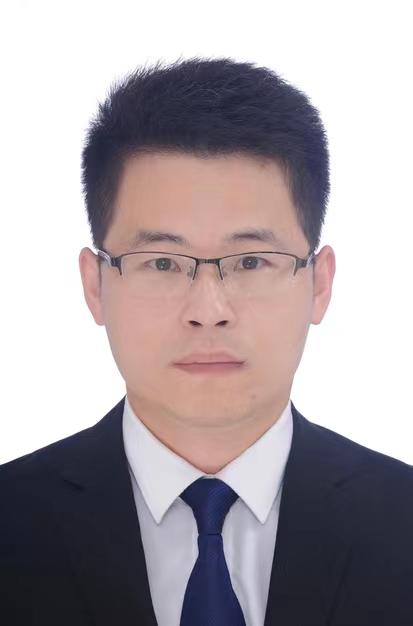 Personal Profile:Lulu Guo received the B.S. degree in vehicle engineering and the Ph.D. degree in control engineering from Jilin University, Changchun, China, in 2014 and 2019, respectively. He is currently a Research Professor at Tongji University, Shanghai, China. Before joining Tongji University, he was a Postdoctoral Research Associate with the University of Georgia, Athens, GA, USA. His current research interests include advanced vehicle control, energy management, and vehicle cybersecurity. Prof. Guo has published over 40 articles in IEEE/ASME journals and won the 2020 CAA Outstanding Ph.D. Thesis Prize and the First Prize of 2021 CAA Technological Invention. He serves as program chair and co-chair in ITEC, CVCI, CAC, SAECCE, etc.
Personal Profile:Lulu Guo received the B.S. degree in vehicle engineering and the Ph.D. degree in control engineering from Jilin University, Changchun, China, in 2014 and 2019, respectively. He is currently a Research Professor at Tongji University, Shanghai, China. Before joining Tongji University, he was a Postdoctoral Research Associate with the University of Georgia, Athens, GA, USA. His current research interests include advanced vehicle control, energy management, and vehicle cybersecurity. Prof. Guo has published over 40 articles in IEEE/ASME journals and won the 2020 CAA Outstanding Ph.D. Thesis Prize and the First Prize of 2021 CAA Technological Invention. He serves as program chair and co-chair in ITEC, CVCI, CAC, SAECCE, etc.
****************************************************************************************************************************************************************
